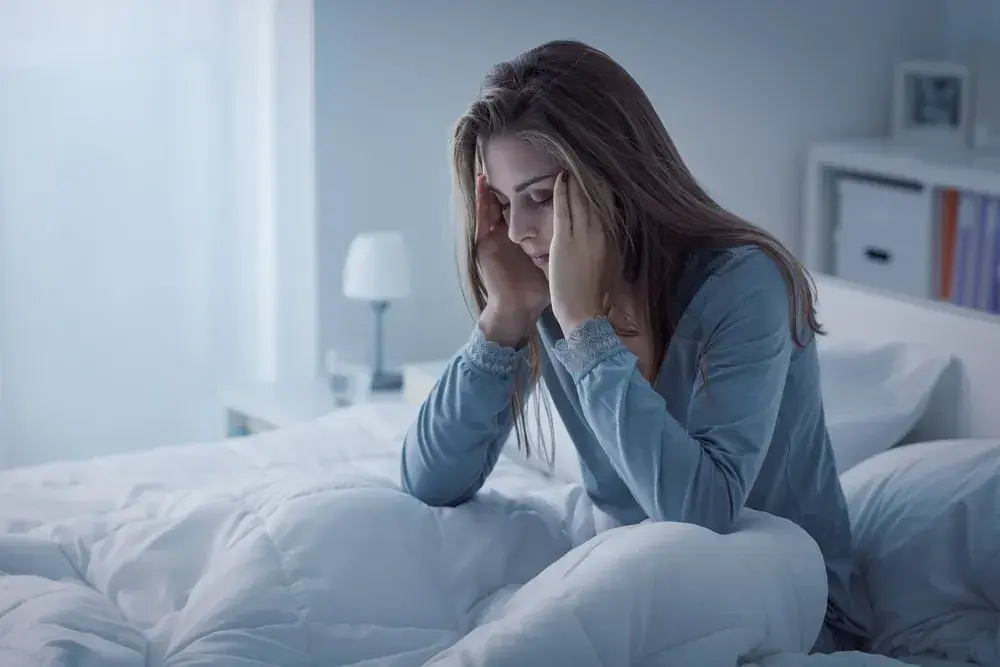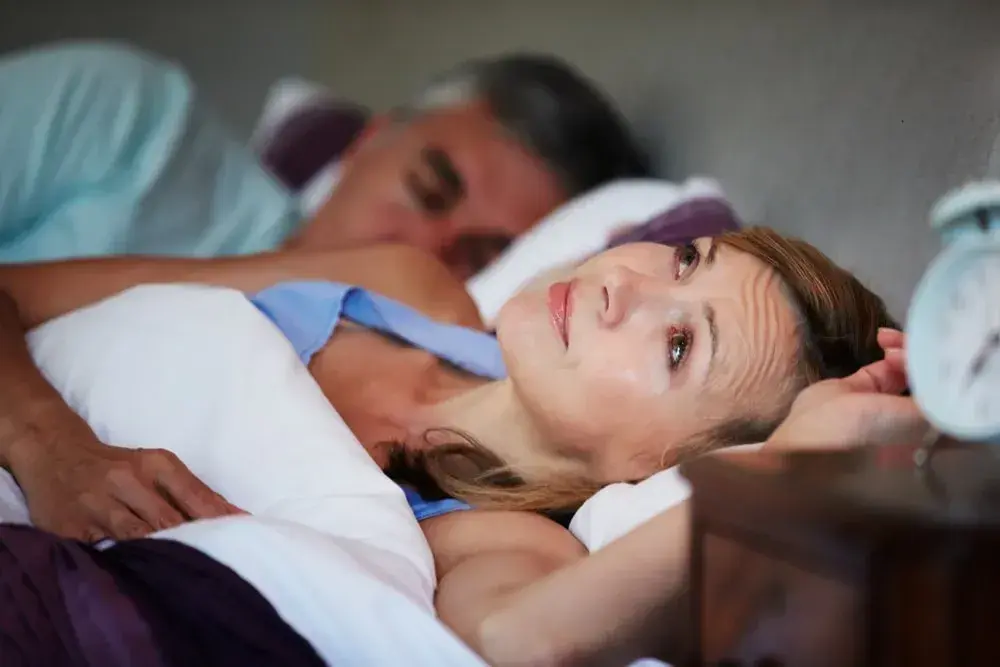
/assets/images/provider/photos/2579172.jpg)
Suffering from lack of sleep or poor-quality sleep can negatively impact many different aspects of your life. Sleep problems can lead to obvious consequences such as drowsiness, difficulty concentrating, irritability, and lack of energy. Sleep deprivation is also related to stress, anxiety, heart issues, impaired immune system function, and weight gain.
If you have difficulty sleeping, changing your sleep habits may help. Relaxing teas and practices such as yoga can also be effective. But in some cases, particularly for women, sleep problems may be the result of underlying hormonal issues, which may require medical treatment.
Female hormones and sleep problems
Studies show that women are more likely than men to experience severe symptoms resulting from sleep problems. Women report greater amounts of insomnia, daytime sleepiness, and problems related to sleep deprivation, such as depression and difficulty concentrating. One major culprit behind female sleep problems is hormones. Hormonal changes during the menstrual cycle, around menopause, and during pregnancy can disrupt the sleep cycle for women. In turn, lack of sleep can affect hormones further, creating a vicious cycle that can be difficult to break.
During perimenopause — the transition into menopause — the ovaries gradually begin to produce less estrogen. This can result in symptoms such as hot flashes, fatigue, irregular periods, irritability, and difficulty sleeping. While we primarily associate estrogen with female reproductive health, this important hormone serve other functions throughout the body as well: estrogen supports cardiovascular health, helps control cholesterol levels, protects bone health, impacts cognitive performance and mood, and also promotes healthy sleep. Estrogen helps the body use serotonin, a neurotransmitter that helps regulate mood and sleep.
As estrogen levels begin to decline, many women experience difficulty falling asleep and staying asleep. When they do fall asleep, they spend less time in rapid eye movement (REM) sleep, and wake up feeling less rested. Hot flashes and night sweats can also cause women to wake up during the night, adding to the problem.
Insomnia’s impact on health and happiness
Sleep deprivation and irregular sleep patterns can have serious short- and long-term effects on a person’s overall health. The body and brain rely on sleep to keep systems functioning. Sleep gives your body time to repair, rejuvenate, and recover from the day’s work. Sleep problems can lead to myriad physical and mental issues, from higher stress levels to heart disease. If insomnia is a chronic problem and not something that only happens occasionally, the risk of negative outcomes significantly increases. The body cannot catch up or heal, which can affect all aspects of life. Lack of sleep can cause issues such as:
- Excessive daytime drowsiness
- Errors in judgment
- Poor concentration and memory
- Depression and anxiety
- Increased risk of diabetes and being overweight
- Increased risk of high blood pressure, heart attack, and stroke
- Greater risk of accidents, injuries, and illnesses
- Increased morbidity and mortality rates
Lack of sleep is a serious issue that gives women more to worry about than just drowsiness or bags under their eyes. Prolonged sleep problems can increase a woman’s odds of hypertension, diabetes, obesity, cardiac arrest, and cancer. Plentiful sleep not only reduces the odds of the above-listed issues, but it can contribute to positive changes such as maintaining a healthy weight, boosting mood, and promoting peace of mind. Getting a good night’s rest is key to overall health, happiness, and wellbeing.
Is there a solution for hormone imbalances?
If you suspect that a hormonal imbalance is at the bottom of your sleep problems, estrogen treatment can help remedy the issue. Studies show that hormone replacement therapy (HRT) in menopausal women improves sleep quality, reduces the time needed to fall asleep, and increases the amount of time spent in REM sleep. HRT may also help promote uninterrupted sleep and improve cognitive function.
During a study of women between the ages of 46 and 62 who received estrogen treatment, 10 out of 11 women reported the quality of their sleep as “very or quite satisfying,” with only one or two awakenings during the night. Prior to the study, participants reported their sleep as dissatisfying and were waking up 3-5 times during the night.
How does HRT work?
HRT restores hormone levels and prevents imbalances through hormones delivered via a pill, a patch on the skin, or other topical treatment. The exact dosage and frequency of treatment can be tailored for each individual to ensure optimal hormone levels. HRT can be an excellent solution during menopause, as it can maintain estrogen levels to help prevent issues such as difficulty sleeping and hot flashes. HRT has also been shown to improve mental focus, increase energy, promote younger-looking skin, and help with weight management.
HRT at Garcia Weight Loss and Wellness Centers
HRT at our offices consists of all-natural hormones that are identical to the ones found in the human body. The hormones are created on a patient-by-patient basis to ensure the compound is correct for each individual. After administering a local anesthetic, your physician will insert a small pellet under your skin near the hip. These pellets distribute a consistent, low-dose level of hormones to replace the ones you’re losing from menopause or other circumstances. Positive effects on menopause symptoms and your sleep cycle can happen immediately. Hormone levels are monitored and adjusted as needed throughout your treatment.
This type of therapy is a great solution for many women, although those with a history of cardiovascular conditions, heart or liver disease, blood clots, or cancer may not be good HRT candidates. Women who are pregnant or trying to get pregnant also should not use HRT and should consider other methods of balancing hormone levels for improved sleep.
Before you turn to sleep aids or other medications that could have serious adverse side effects, find out if hormone replacement therapy may be right for you. A no-cost consultation at Dr. Garcia’s Weight Loss and Wellness Centers can help you discover whether hormonal imbalances could be contributing to lack of sleep. If so, our safe and effective natural HRT program may provide the relief you need.


